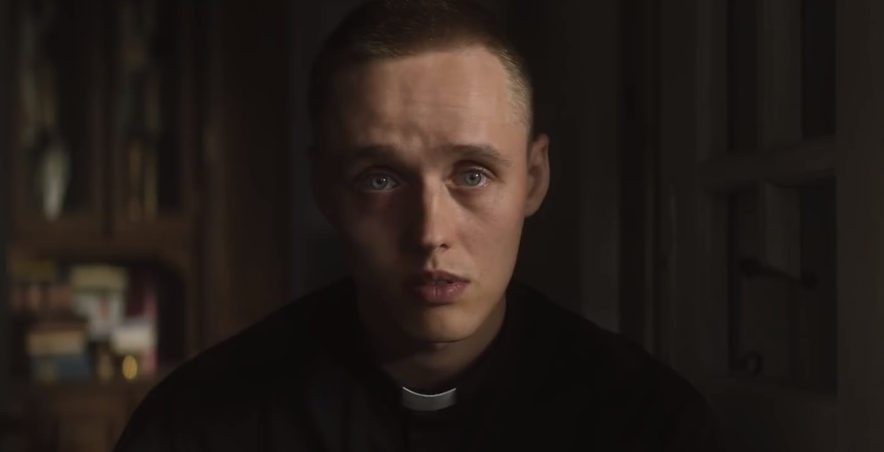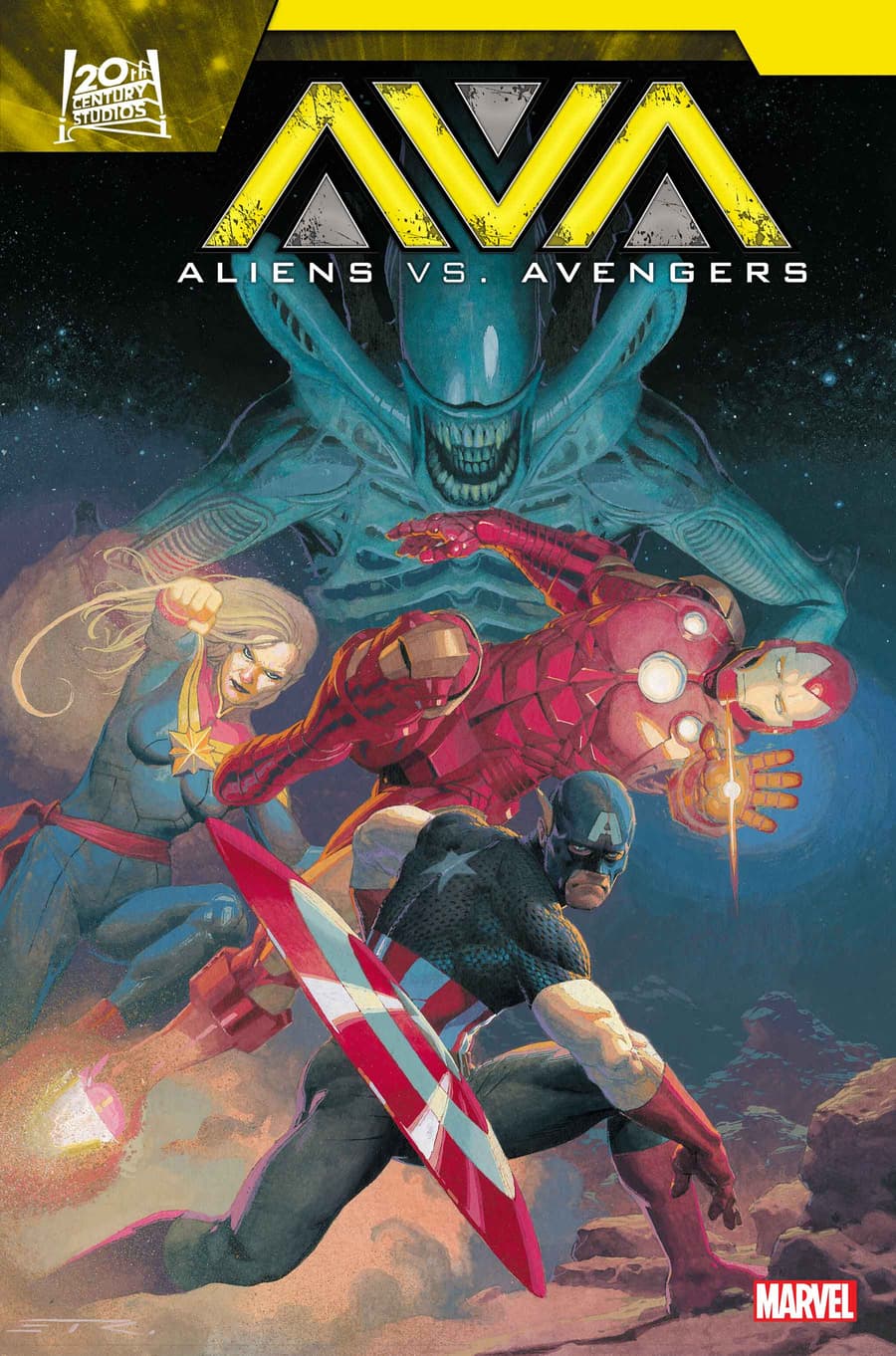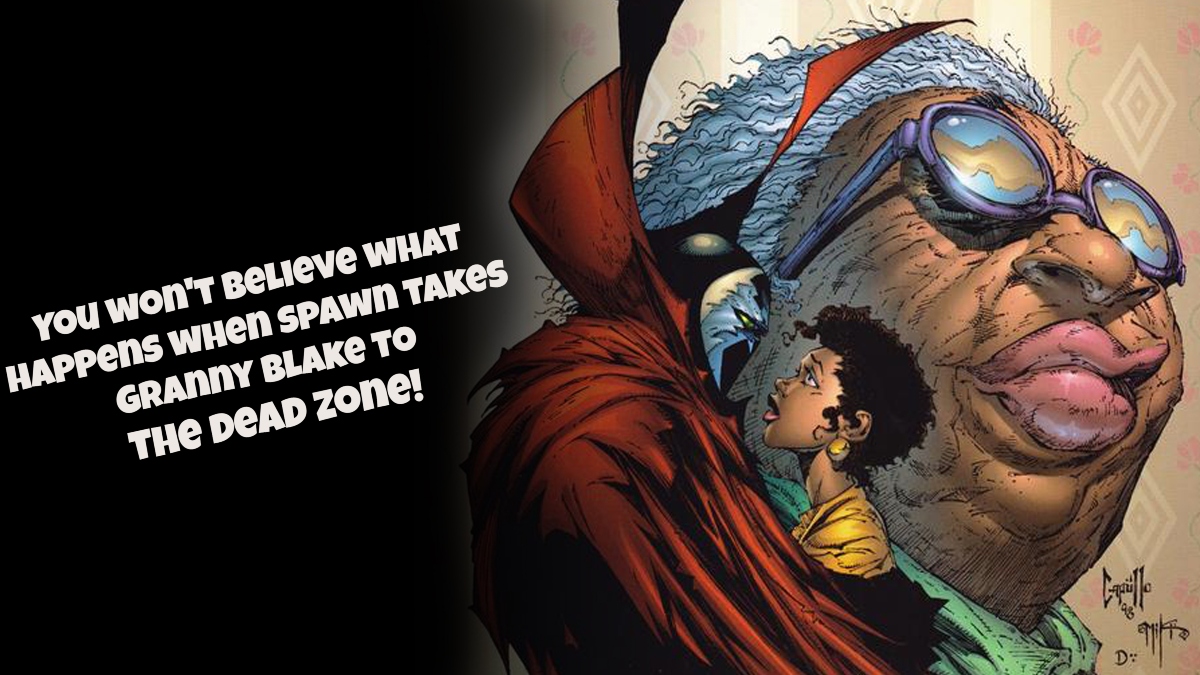
LRM Online recently had a chance to sit down with Jan Komasa and Bartosz Bielenia, the director and lead actor from the new Polish drama film Corpus Christi, which won ten awards at the Gdynia Film Festival.
Below is the official synopsis for Corpus Christi:
“Corpus Christi is the story of a 20-year-old Daniel who experiences a spiritual transformation while living in a Youth Detention Center. He wants to become a priest but this is impossible because of his criminal record. When he is sent to work at a carpenter’s workshop in a small town, on arrival he dresses up as a priest and accidentally takes over the local parish. The arrival of the young, charismatic preacher is an opportunity for the local community to begin the healing process after a tragedy that happened there.”
LRM Online: Okay, so what attracted you to this? Because this is not a simple drama. You have a little bit of controversy. Anything’s controversy when it comes to politics and religion.
Komasa: Yeah.
LRM Online: So what was it about this that attracted you, for both?
Bielenia: Money (laughs).
Komasa: Because I really admire the non-fictionality of it because it was the article at first, written by the script writer, who became the script writer for Corpus Christi. At the time eight years ago, it was even nine years ago, he became fascinated with the cases of fake priests in Poland, which apparently is the case. I didn’t know about it. Several cases each year in Poland of people pretending to be priests or spiritual leaders, so to speak, and Mateusz Pacewicz became fascinated with it. So he wrote an article for the newspaper and after it was released, he was approached by a producer who wanted to buy rights for the story for the article. And he said, “no, I’m going to write it myself.” So it came from very factual base. And starting from there they started to add more things to it, like juvenile detention center or the accident in the village.
And then they sent it to me and I said, “let’s emphasize these new elements to the story more,” so the juvenile becomes bigger and the accident theme with parents is bigger and let’s detach it from the original story because I was feeling very confident about the grounding of it, which I love. Usually if I have a film which if I read the project that’s based on real events, in order not to offend anybody, it’s becoming very circuitous and not trying to be very out front, critiquing anybody. So you end up with a benign mediocre film about something important that happened in history or maybe it’s very recent history. With this, it was very sharp, edgy and controversial and it really happened. And then we emphasize the fictionalized elements into it. And then we cut up from the original stories and we ended up with Corpus Christi as we have on the screen now. So basically, I was mesmerized by the complexity of the story, but it’s the rooting, anchoring in real life.
LRM Online: Do you know why people get into faking being priests?
Bielenia: So many reasons. The most important is probably money.
Komasa: Yeah, economical reasons.
Bielenia: It’s easier to steal from, because believers, they give you money.
LRM Online: They’re a little naive?
Bielenia: It’s easy to be trusted as a priest.
Komasa: Nobody questions you if you wear a collar.
LRM Online: True.
Bielenia: This one and the one that we based our story on is exceptional because he did it because he really want to be a priest.
Komasa: Yeah.
Bielenia: He wanted to do it.
Komasa: He felt a calling.
Bielenia: Yeah. So that’s an exception, out of those other examples. So maybe that’s what’s calling them.
Komasa: Also, the original case that happened was exceptional in many ways. For example, which is not in the film, it was never meant to be in the film, it ended by uncovering and of that he’s not a priest and people questioning whether they are married or not, their children are baptized or not because he ran all the ceremonies. Right? And he gave them sacraments so they didn’t know. But they didn’t know whether it was legal. So they started to write letters to Vatican and Vatican ran an investigation and the result of it was pretty exceptional too. They healed canonic law, quote unquote “healed the sacraments”. And Patrick, was his original name, was excommunicated from the church. So he can’t go to masses.
Bielenia: He can go to mass but he can’t engage in the sacrament of communion.
Komasa: Also he has a wife but he-
Bielenia: Can’t get married. He can’t get sacraments.
Komasa: He can’t get sacraments. So, the original story had many, many absurds, paradoxes.
Bielenia: I didn’t base my character on this story at all. I didn’t even read the article about..
LRM Online: Good. So what attracted you to it?
Bielenia: I was in the casting simply as a struggling doctor. So I just heard the story that it’s about the guy who’s going out of juvie and wants to be a priest, but he can’t because of something. So he starts to pretend one. And for me, it’s a very interesting starting point to build a character with complex motives. So, that was interesting. Someone from the very harsh background, going somewhere trying to do good. That’s exceptional. And that’s weird. It’s not happening very often. So I thought it’s an amazing material to talk and to find someone who’s complicated for sure and who’s real and who wants to do something.
Komasa: And usually in cinema you have simple stories.
Bielenia: Our story is very simple to be honest.
Komasa: Well, it is.
Bielenia: The characters are complicated.
Komasa: Yes.
Bielenia: The story’s super simple.
Komasa: But that’s the great advantage of this. But also, you have basically very simple stories and very simple reading of those. This story has an exceptional complexity because you have two films in one, one of them is about pretending to be a priest and you can make a film just out of this, based on what really happened. And the other film is about a fractured community. Parents who lost their children in a car crash and them trying to come together. So you can imagine a priest, young priest, real priests coming to town and just trying to get them together. It could be a good film.
Bielenia: I would argue about that, that’s what I was thinking. Sounds like a pretty boring story.
Komasa: That’s a goal.
Bielenia: Sorry. (laughs) “Oh, there is this problem, let’s try to solve it.’
Komasa: The premise is …well I could make a good film out of that. (laughs)
LRM Online: Next film (laughs)
Komasa: Next film. Same one but…
Bielenia: Young priest comes and he’s a replacement to the other one.
Komasa: Two films in one and you have two films which start to communicate. And the complexity of the meanings you squeeze out from the story is amazing. You have a liar who squeezes out the truth.
LRM Online: Which is great.
Komasa: He squeezes out the truth from people. You have a patient from the juvenile detention center who runs a therapy on the village, the screaming part, the primal scream sessions.
LRM Online: I was going to ask you about that.
Komasa: That’s the thing.
LRM Online: Where did that come from?
Komasa: Paradox. It’s from theater workshops, it’s from therapy. Someone was doing a documentary about addiction therapy centers and they’re doing those things there and it’s very visually interesting also.
Bielenia: It also fitted in the story, release your emotions. The whole community that Daniel is in, they are closed. They have closed emotions, they have closed lives, they have closed minds when they are thinking something about something, it’s fixed. It’s already in marble. So he helps them break those chains and feel your emotions-
Komasa: True, connect with yourself. So, if you feel angry, don’t pretend you’re not, just express it. And suddenly, you have parents who couldn’t feel anger out in the open. They had to hide it to themselves.
LRM Online: I loved that scene when it was practicing the whole inhaling, exhaling with the parents. That was my favorite. I was actually laughing. I was like “oh my god, they all look so funny”.
Komasa: Absurd thing. It’s an absurd thing.
LRM Online: Yes it was.
Komasa: It was absurd to even shoot it. It was much, much longer when we were shooting it…
Bielenia: Six hours.
Komasa: Six hours of screaming “you whore, you whore” in the village, which is very concerning. So I went approached the villagers before we started to shoot the film.
LRM Online: Okay.
Komasa: And I told them the whole story of this, like why is it so.
Bielenia: Please understand.

LRM Online: But they then banned you.
Komasa: Really. I was standing there and they were like “uh-huh, uh-huh (affirmative) okay”.
Bielenia: They were like, “yeah, sure.”
Komasa: And I told them, it’s great that you keep your children away because we are going to be shouting.
Bielenia: For the next six hours.
Komasa: There was this guy from the village.
Bielenia: Oh my god.
Komasa: Who was trembling after he saw that and-
Bielenia: He started to cry.
Komasa: …He had tears in his eyes and he came to us, he wanted to do something.
Bielenia: He wanted to help, help those people.
Komasa: To help those people.
LRM Online: Aww.
Bielenia: It’s like, “no, we’re filming.”
Komasa: Yeah, yeah, yeah. And he said, “you can’t shout you whore like that”. He was so memorized by his performance.
LRM Online: Well that’s a compliment to you guys, that’s for sure.
Bielenia: It was, it was. It was huge. I forgot about that and I just remembered that.
LRM Online: So it must’ve been challenging, how for the first part of the film, the first scene was pretty strong and painful to watch. Imagine trying to portray who this guy is really. Hurting a kid with a drawer. When I was watching I was like, “what am I watching?”
Bielenia: Yeah, that first scene.
LRM Online: That was like the first scene. So it impacted like, “whoa, where’s this movie going?” But then, afterward you’re trying to do this other transition of being a realist and as you said, he becomes like a therapist. He’s trying to fix everything.
Komasa: It’s an absurd. It’s the play off…
LRM Online: What’s the challenge in that?
Bielenia: It’s the redemption of his own bad decisions, it’s his own bad life, when you feel that you messed up your life so badly that you ended up in the juvie for so many years, you’re just going out, you don’t know life and you want to change yourself and you think you changed yourself, you want to give back something simply. And that scene I think helps because it’s true. It shows how hard probably those years there was for him, through what maybe he went through, because I’m helping this guy, I’m just taking–.
Komasa: He’s involved in the circle. So he has to obey by the rules, go by the rules of this community, which he’s been driven out of but at the same time he’s not one of the direct perpetrators. Right. But he is with them and he is also detached from the emotions. He has to in order to endure it.
LRM Online: So one of the things I really enjoyed about your character was how you used praying to get to other people, not to mention when the praying happened at the sawmill, with that guy, I was just laughing. I was like, “oh my gosh, that’s hysterical. Can we all just use prayer to get to people?” That was hilarious.
Komasa: It’s a good way to get to people.
LRM Online: Direct and direct.
Bielenia: Yes. Especially if they claim that they’re religious. So, come on, let’s pray.
Komasa: Yeah. Kneel down and let’s pray. Get back to roots. Get back to what it was, 2000 years ago. It’s you and God. And that’s it. Let’s forget about great cars and if you claim you’re religious, get into it. Do you know this TV series, Young Pope?
LRM Online: I haven’t watched it.
Komasa: But you heard of it?
LRM Online: I’ve checked it out and I’ve heard of it. Yes.
Bielenia: It’s amazing.
Komasa: It’s in a way the same because he comes back to the original thought of the Jude Law character, the Pope.
Bielenia: He comes back conservative.
Komasa: Very conservative, but for some, for conservatives, it’s the revolutionary thing.
Bielenia: Yeah.
Komasa: So in a way it’s very-
Bielenia: Yeah, I like this, a prayer as a weapon because there is a power game between him and the mayor of the town. So there’s this power game between them. So he uses his power, his superpowers to do it. Mayor is doing his stuff, his power games. But yeah. So we’re using your disadvantage as an advantage.
Komasa: God saved me from my greed and then you watch the face of the mayor. He can’t say no, he has to endure it.
LRM Online: And then, you did leave a cliffhanger there to how you managed to change his mind, to finally sit down and come to a conclusion there.
Bielenia: I think he was always that way too. He wants good, he wants good for his family also, because that’s the thing with those characters, they’re people. People does that. If it comes to when we are facing the wall, when we put it in the corner, sometimes we forget… this story for Mayor, it’s not about money at all. It’s about, no, okay, let’s try to fix it because it is a horrible situation that someone wasn’t buried and there is no way to disagree with that and Mayor probably sees them. He feels that, so he’s thinking with his family at home because we see that he has a lot of children. He has a family, probably his wife’s told him, “what the fuck are you doing? Get this shit together, simply. Talk with them. The guy is in the house. He wasn’t buried. Are you Catholic or something? Are you a believer?” So he probably went like, “okay, we need to do something with that.” He was doing his power games, but it was about his work.
Komasa: Basically it was he, who is he?
Bielenia: He’s not above God.
Komasa: Everyone has their own goals, but there’s this status quo thing. He was protecting the status quo. He knows he’s conducting a boat and he doesn’t want the boat to sway too much. So he says basically, “don’t dance on my boat. Otherwise it can flip upside down. So just don’t talk about it. Don’t investigate. Don’t ask people about the accident. Why? It was a long time ago, but don’t scratch old wounds”.
Bielenia: Because it’s fixed, it’s okay. The situation is good. It’s not bad, but when it goes horribly wrong, he wants to put it together simply.
LRM Online: Right. So, I know in this case your character has this whole deal about religion and even wanting to be a priest. But I sensed a little bit in the scene in the church where this gal’s like, “Okay, so you’re here to go to the sawmill” and then “oh, you came from the juvie” and then yet at the end, I felt like the character felt like, do I portray to just not be a good guy? Can I just be respected or looked differently? And I felt like that’s where also the representation of being a priest came in, or am I wrong?
Bielenia: Yes, absolutely. In this scene, it’s about that. So, he’s after a great party and probably is very hungover. He looks like a guy who came to a sawmill. [crosstalk 00:19:43].
Komasa: It’s right after.
Bielenia: He looks like one of those guys and…
Komasa: For so many years, he was in juvie. So it’s for the first time when he travels to a different part –
Bielenia: Your environment changes you.
Komasa: Totally. For him it’s like being out in the wild. He’s afraid. So what’s the only place you can look for shelter in? It’s the church.
LRM Online: But even then in the bus scene, you’re just sitting there and then, you just get stereotyped.
Bielenia: Yeah, because I’m smoking a cigarette on the bus. I don’t know, in America, is it allowed to smoke a cigarette on the bus?
LRM Online: No, but I thought, Europeans, everyone’s smokes. That’s what I was thinking. I was like, “oh well, you could smoke on a bus.” And I’ve been to Europe but I haven’t really been hanging out on the buses.
Bielenia: No, unfortunately, you can’t, it’s forbidden. You can smoke on a bus in —
LRM Online: But you did have the window open.
Bielenia: Yeah, I did.
Komasa: He was getting rid of his ash.
Bielenia: Because being kind to co-passengers.
LRM Online: The co-passengers.
Bielenia: Co-passengers.

LRM Online: So, it must be pretty spectacular that you guys are Oscar entered at the Academy. Best international film in Poland. Tell me about that. Did you expect this?
Bielenia: I didn’t at all.
LRM Online: … trying because you were looking for something to be in.
Bielenia: I didn’t expect it at all. For me, this is a huge surprise. I was just doing a film.
Komasa: Yeah. Well, I know it’s my third film and I know the rules of the game, in terms of, you have to pass or you have to work through a lot of steps to get at least consideration in your home country. So usually with Spain or with France or with any other country, there are zillions of zillions of established directors who are already lined up for recognition, especially Oscar campaigns, etc. So we are not an exception from this. If you look at last 10 years at least, we have two Paweł Pawlikowski films, who with Ida, was already established because he won BAFTA before, with his debut film 10 years ago or something.
Komasa: We had two Agnieszka Holland films. We had two Andrzej Wajda’s films. We are talking big names. So after many years now, it was probably the year, which none of them made the film, or Agnieszka made the film, but it was in English.
LRM Online: Okay.
Komasa: So it was a free space for me to try to get in. And I was lucky. I think, it’s political decisions.
Bielenia: Still, we have huge competition around the world right now.
Komasa: Yeah, yeah. But I was lucky, I guess for Poland it could be any other film because of something, it can be because of, I don’t know, there is different countries, different policies, you have countries who I know submit their film because the film shows the country in a very good light or something, because it’s an advertisement for the country and it was here before as well.
In Poland as well, we had these films, which for the lack of other films, which were more recognized, which were taking. So, this year could go in different directions. They chose mine, which I really appreciate because it’s a huge game changer for me as a director, to be an Oscar submission before turning 40 but still, I don’t have a name. Right? In Europe maybe, because it’s my third film. My films were in Cannes and Berlin and Rotterdam, now in Venice. But in here, you start from scratch. So you have to gain recognition and if you start that late in the year, you don’t have much time for it. So you start with Venice Film Festival, Toronto, you have two months of promoting and you’re done. So it’s cool, it’s great. I love being here talking to people about cinema, about making movies.
Komasa: Maybe talking about my next project, we will see. But it’s just an adventure so it’s not like I’m “ah, craving for it”. No, it’s just I take it as it goes and I’m grateful for what I have.
LRM Online: You do have to take some credit here because you are representing the film too. Your performance.
Bielenia: I am uncovering much of that on the streets.
Komasa: 99% of the film is Bartosz.
Bielenia: Yes, I’m also very grateful. I’m happy that this story’s working with people and [inaudible 00:25:32] people from around the world. Because we will be screening in 40 countries, almost every continent.
Komasa: 60 film festivals, 40 countries bought the film.
LRM Online: Wow, that’s great.
Komasa: 850,000 admissions in Poland, as of now. It’s out there and it’s the third-
Bielenia: Third week.
Komasa: Third week? But fourth weekend? I think so.
Bielenia: Now, yeah, it’s fourth weekend.
Komasa: Okay, so three weeks in the cinema, out there on the screens and 850.
Bielenia: Yeah. I’m super grateful that we got on the screen from Australia, New Zealand to Asia to United States. So it’s super, it’s a great adventure.
LRM Online: Well, I wish you a lot of success and I really enjoyed the film. I myself, I’m Catholic, so I was fascinated to watch and then, taking the material, the religions.
Bielenia: You were raised Catholic?
LRM Online: Yes.
Bielenia: Okay.
LRM Online: Yes and you did great. You were very respectful. So I was intrigued.
Don’t forget to share this post on your Facebook wall and with your Twitter followers! Just hit the buttons on the top of this page.
—–
Have you checked out LRM Online’s official podcast feed yet The LRM Online Podcast Network, which includes our flagship podcast Los Fanboys, our premiere podcast Breaking Geek Radio: The Podcast, and our morning show LRMornings? Check it out by listening below. It’s also available on all your favorite podcast apps!
Subscribe on: Apple Podcasts | Spotify | SoundCloud | Stitcher | Google Play

 FOR FANBOYS, BY FANBOYS
Have you checked out LRM Online’s official podcasts and videos on The Genreverse Podcast Network? Available on YouTube and all your favorite podcast apps, This multimedia empire includes The Daily CoG, Breaking Geek Radio: The Podcast, GeekScholars Movie News, Anime-Versal Review Podcast, and our Star Wars dedicated podcast The Cantina. Check it out by listening on all your favorite podcast apps, or watching on YouTube!
Subscribe on: Apple Podcasts | Spotify | SoundCloud | Stitcher | Google Play
FOR FANBOYS, BY FANBOYS
Have you checked out LRM Online’s official podcasts and videos on The Genreverse Podcast Network? Available on YouTube and all your favorite podcast apps, This multimedia empire includes The Daily CoG, Breaking Geek Radio: The Podcast, GeekScholars Movie News, Anime-Versal Review Podcast, and our Star Wars dedicated podcast The Cantina. Check it out by listening on all your favorite podcast apps, or watching on YouTube!
Subscribe on: Apple Podcasts | Spotify | SoundCloud | Stitcher | Google Play




